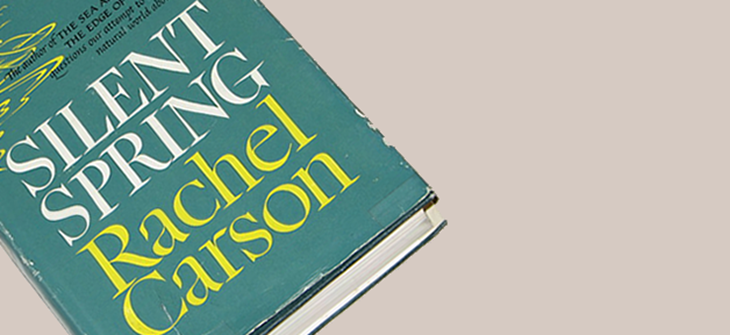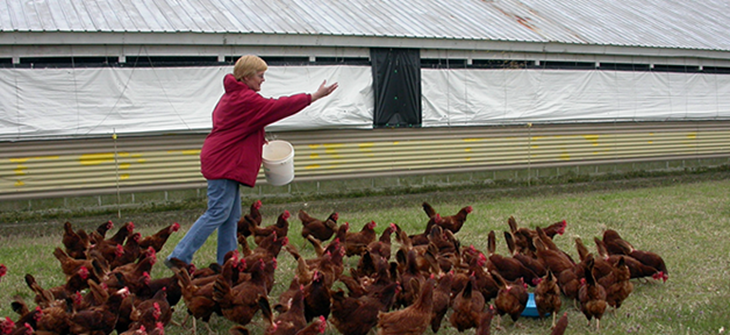Published 17/04/2013

On the 50th anniversary of the death of scientist and environmentalist Rachel Carson, Compassion in World Farming CEO, Philip Lymbery, is visiting her birthplace to find out more about the ugly truth of factory farming. Yesterday, Philip discussed the book that made her a household name – Silent Spring – and looked at some of the impacts of industrial agriculture on the natural world. Today, he focuses on a specific problem – intensive chicken farming.
As I mentioned yesterday, Chesapeake Bay is the largest estuary in the United States. The bay is a stunning area of great natural beauty and it’s a privilege to be here; to see this globally renowned area for myself.
A chicken catastrophe
I’ve been talking to some leading figures who tell me that the bay is under threat. One of the biggest culprits is chickens…
There are now nearly as many chickens being produced in the three States surrounding the bay as there was across the entire country sixty years ago. The vast majority of these are factory farmed. That’s an awful lot of birds in one area.
How do chickens locked in long windowless sheds harm something as vast as the 320-km- (200-mile-) long Chesapeake Bay? Through the poultry manure spread on the fields.
An expert view
I spoke with Bob Martin at the Johns Hopkins Centre for a Livable Future in Baltimore. He told me how enormous quantities of waste are being spread on the surrounding farmland, which leads to nutrient run-off that often ends up in the Bay.
The pollution can have a big effect on the natural life of the Bay, including periodic fish kills of thousands at a time. It makes it harder for the once-abundant oysters to grow. "Things are out of balance", Bob told me; industrial agriculture is "the significant threat to environmental damage" in this area.
A happier, more sustainable alternative
I also met up with Carole Morison, an industrial chicken farmer of 23 years, who is now much happier rearing laying hens on pasture.

Carole was concerned about how farmers were being treated by big chicken companies, and about the environmental effects of intensive production. So she switched to what she calls "happy chickens". Now, instead of complaints from customers, Carole gets people ringing her up to say how great her eggs taste!
Tomorrow, I’ll be taking a helicopter flight over Chesapeake Bay, getting a bird’s eye view of the chicken-pollution problem…
